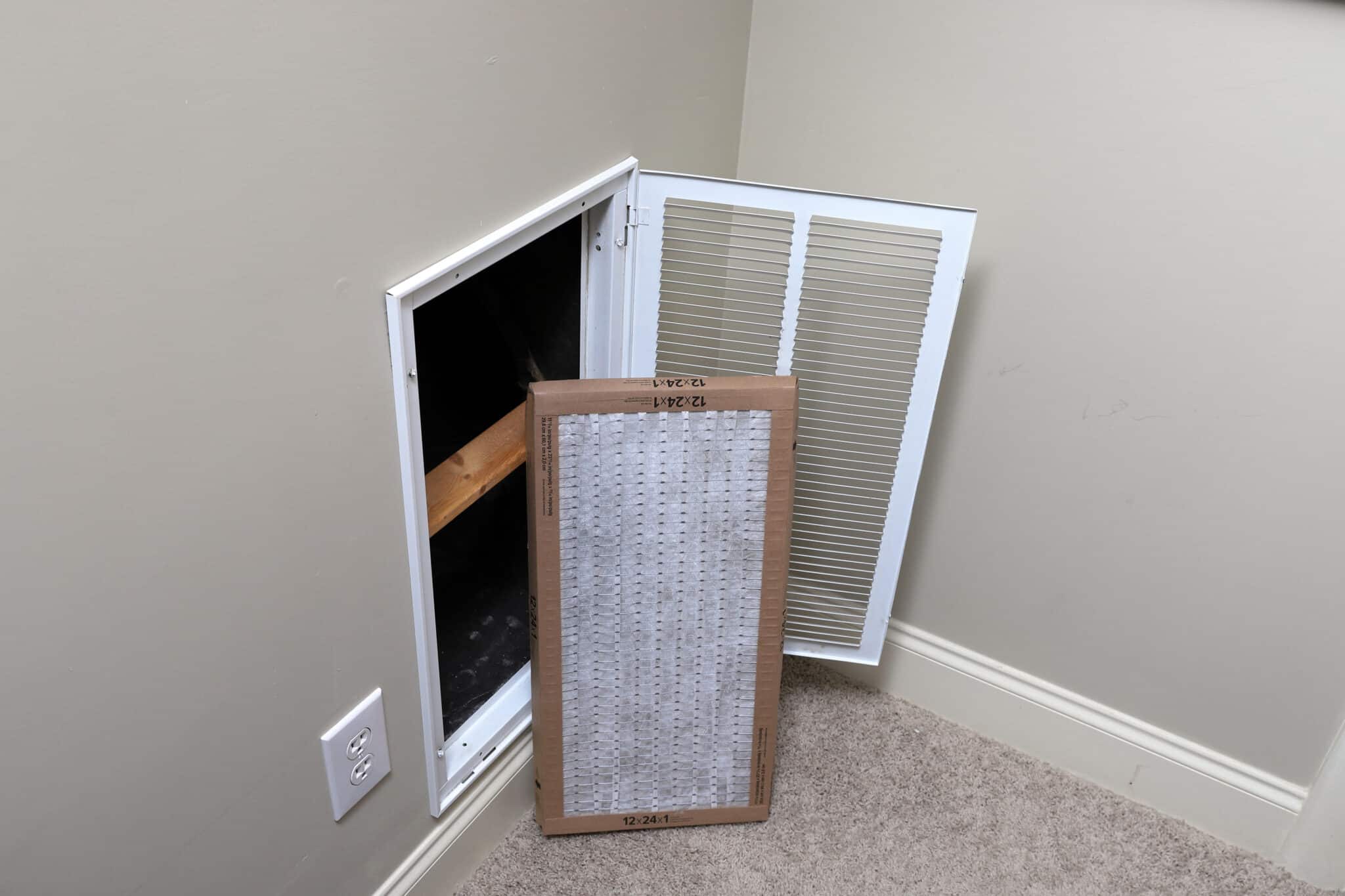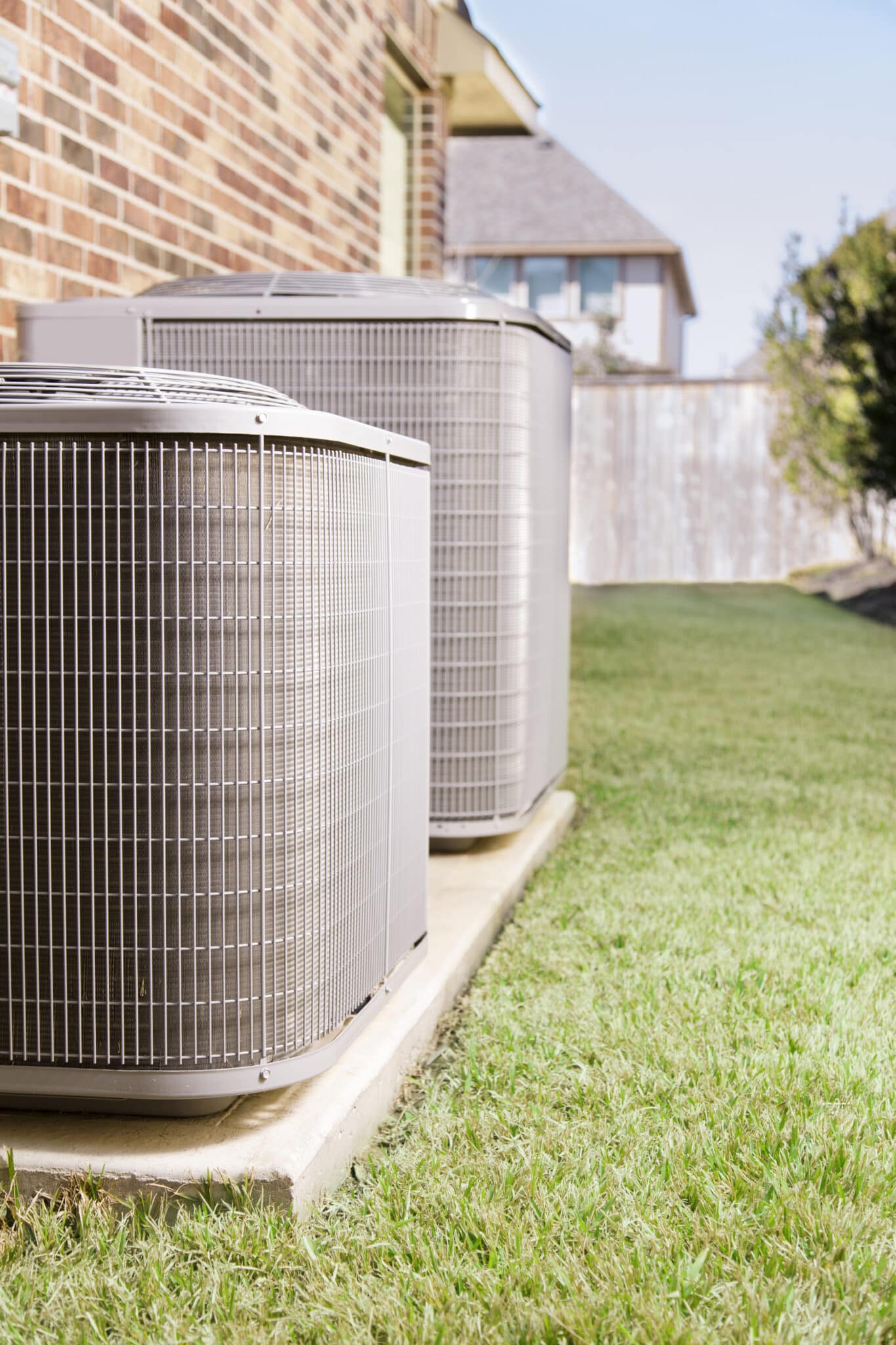
Spring HVAC Tips for Efficiency
Are you ready to improve your home’s energy efficiency this spring? Using essential HVAC tips can help keep your system running smoothly in Aledo and Fort Worth, TX. As temperatures rise, small adjustments like changing air filters and optimizing thermostat settings prevent breakdowns and lower energy costs. A well-maintained system ensures better airflow, improved comfort, and long-term savings. Get your HVAC unit prepared for the season with these expert efficiency strategies.
Schedule a Professional HVAC Inspection for Spring
Spring is the perfect time to follow essential HVAC tips and schedule a professional inspection in Aledo and Fort Worth, TX. As temperatures rise, your system works harder, making seasonal maintenance crucial for efficiency and reliability. A certified technician can identify hidden issues, optimize performance, and prevent costly repairs before summer heat arrives.
During an inspection, experts check refrigerant levels, tighten electrical connections, and clean vital components. These small adjustments improve energy efficiency and reduce strain on your unit. Without regular servicing, minor issues can escalate, leading to breakdowns and higher energy bills. Preventive maintenance ensures your system runs smoothly throughout the season.
Routine tune-ups also extend your HVAC system’s lifespan. By keeping essential parts in peak condition, professional care reduces wear and tear. If you haven’t scheduled your spring maintenance yet, now is the best time to do so.
Beyond efficiency, maintenance enhances indoor air quality. Clean filters and coils remove dust and allergens, creating a healthier home environment. Following expert HVAC tips keeps airflow consistent, lowers energy costs, and ensures comfort all season long.

Change Air Filters to Improve Airflow
One of the simplest HVAC tips to improve efficiency is replacing air filters regularly. In Aledo and Fort Worth, TX, spring brings increased pollen, dust, and allergens, causing filters to clog faster than in winter. A clean filter enhances airflow, allowing your system to run efficiently while keeping indoor air fresh.
Why Changing Air Filters Matters:
- Boosts system efficiency – A dirty filter makes your HVAC system work harder, increasing energy consumption.
- Reduces energy costs – Clean filters improve airflow, helping to lower utility bills.
- Prevents breakdowns – Clogged filters strain the system, leading to expensive repairs and reduced lifespan.
- Improves air quality – HEPA filters trap fine particles, reducing allergens and enhancing indoor comfort.
How Often to Change Air Filters:
- Check filters regularly, especially during high pollen seasons.
- Replace standard filters every few months for optimal performance.
- Homes with pets or allergy concerns should consider more frequent replacements.
Keeping air filters clean is a simple yet powerful way to maintain system efficiency. Following these HVAC tips protects your unit, enhances indoor air, and ensures consistent cooling throughout the season.
Adjust Your Thermostat for Energy Savings
Optimizing your thermostat settings is one of the most effective HVAC tips to improve efficiency and reduce energy costs. Spring brings fluctuating temperatures, making it the perfect time to adjust your system for maximum comfort and performance. A properly set thermostat minimizes energy waste, extends system lifespan, and keeps your home consistently comfortable.
-
Use a Programmable Thermostat
A programmable thermostat adjusts temperatures automatically based on your daily schedule. Raising the temperature when you are away and lowering it before you return ensures efficiency while maintaining indoor comfort.
-
Find the Optimal Temperature
Setting your thermostat a few degrees higher during mild spring days helps ease the workload on your HVAC system. Finding a balance between comfort and energy savings prevents overcooling and reduces monthly utility bills.
-
Upgrade to a Smart Thermostat
Smart thermostats are among the best HVAC tips for energy savings. These devices learn your schedule, adjust settings automatically, and allow remote control via smartphone apps for added convenience and efficiency.
-
Keep Temperatures Consistent
Frequent temperature adjustments force your HVAC system to work harder, increasing wear and tear. Keeping a steady temperature prevents unnecessary cycling, lowers energy use, and extends the lifespan of your unit.
-
Use Ceiling Fans for Air Circulation
Ceiling fans help distribute air evenly, reducing the need for constant cooling. Running fans alongside a well-set thermostat enhances comfort while lowering overall energy consumption.
Implementing these HVAC tips boosts efficiency, lowers energy costs, and extends system longevity. Smart thermostat management ensures your home remains comfortable while reducing unnecessary energy waste throughout the season.
Clean Air Vents and Ducts for Better Circulation
Spring is the perfect time to refresh your home, and that includes ensuring your air vents and ducts are clean. Dust, pet dander, and debris build up over time, blocking airflow and reducing HVAC efficiency. When vents are obstructed, your system works harder, leading to higher energy bills and uneven temperatures. Applying these HVAC tips will improve circulation, enhance efficiency, and promote healthier indoor air.
-
Vacuum Vents Weekly
Dust and dirt accumulate quickly inside vents, restricting airflow. Using a vacuum with a brush attachment removes debris and helps air move freely. Regular cleaning reduces strain on your HVAC system and maintains steady airflow.
-
Replace Air Filters Regularly
Clogged air filters make it harder for your HVAC unit to function efficiently. Replacing filters every few weeks improves air quality, prevents dust buildup, and reduces system workload. Homes with pets or allergy sufferers may need more frequent replacements.
-
Keep Vents Unobstructed
Blocked vents cause temperature imbalances and force your system to overwork. Ensuring furniture, rugs, or curtains are not covering vents allows for even airflow distribution and better temperature regulation throughout your home.
-
Schedule Professional Duct Cleaning
If you notice excess dust, musty odors, or worsening allergies, dirty ducts could be the cause. Professional duct cleaning removes contaminants, improves airflow, and helps your HVAC system run more efficiently.
-
Keep Interior Doors Open
Good ventilation is key to HVAC efficiency. Leaving doors open allows air to circulate properly, reducing pressure imbalances and keeping your home’s temperature consistent.
Using these HVAC tips improves airflow, reduces energy waste, and extends your system’s lifespan. Regular maintenance keeps your home comfortable and ensures your HVAC unit operates at peak efficiency year-round.

Check Your Outdoor Unit for Obstructions
As the weather warms up, your outdoor HVAC unit needs attention to perform at its best. Leaves, dirt, and debris from winter can clog airflow, forcing your system to work harder and use more energy. A neglected unit can lead to costly repairs and reduced efficiency. Follow these five HVAC tips to keep your system clear, improve performance, and extend its lifespan.
-
Keep the Area Around Your Unit Clear
Your outdoor unit needs proper airflow to function efficiently. Remove any leaves, twigs, or grass clippings from around the system. Maintain at least two feet of clearance on all sides, trimming any nearby plants or bushes. This simple step improves circulation and prevents your HVAC from overworking.
-
Clean the Fan Blades for Maximum Efficiency
Dirty or damaged fan blades can make your system struggle to cool your home. Wipe them down with a soft cloth to remove dust and grime. If you notice cracks or excessive wear, consider replacing the blades. A well-maintained fan ensures proper airflow and prevents overheating.
-
Wash the Condenser Coils to Boost Performance
Dirt-covered condenser coils can reduce cooling efficiency and strain your system. Use a garden hose to gently rinse away dust and buildup. Avoid using high-pressure water, as it can damage the delicate fins. Keeping the coils clean ensures your HVAC runs smoothly all season long.
-
Straighten Bent Fins to Improve Airflow
The metal fins surrounding your condenser help direct airflow, but they can bend over time. Use a fin comb to carefully straighten them, restoring proper ventilation. Properly aligned fins help your system maintain efficiency and prevent unnecessary strain on the motor.
-
Listen for Strange Noises That Signal Trouble
Your HVAC system should operate quietly. If you hear rattling, buzzing, or grinding, there may be loose parts or internal damage. Catching issues early prevents costly breakdowns. If the noise continues, schedule an inspection with a professional for a thorough checkup.
By following these HVAC tips, you can keep your outdoor unit running efficiently, lower energy costs, and avoid expensive repairs. A little maintenance goes a long way in keeping your home cool and comfortable throughout the warmer months.
Seal Windows and Doors to Reduce Energy Loss
Sealing windows and doors is one of the most effective HVAC tips to improve energy efficiency. Small gaps allow cool air to escape, forcing your system to work harder. By addressing air leaks, you can maintain a stable indoor temperature and reduce unnecessary energy waste. A well-sealed home helps your HVAC system run more efficiently while lowering cooling costs.
Checking for drafts is an easy way to identify problem areas. Running your hand along window and door frames can reveal air leaks. Applying weatherstripping or caulking to these gaps helps keep cool air inside and prevents warm outdoor air from entering. Proper sealing reduces strain on your HVAC system and enhances overall performance.
Beyond sealing gaps, using thermal curtains or blinds can help regulate indoor temperatures. Blocking direct sunlight prevents heat buildup, easing the workload on your cooling system. Closing blinds during the hottest parts of the day keeps rooms cooler and reduces the need for constant HVAC adjustments.
Minimizing energy loss is a key step in following HVAC tips for efficiency. By sealing leaks and improving insulation, you extend your system’s lifespan, enhance indoor comfort, and achieve long-term energy savings. Implementing these HVAC tips ensures your home stays comfortable year-round.
Consider an HVAC Upgrade for Long-Term Efficiency
If your HVAC system struggles to keep up with temperature changes, upgrading could be the best solution. One of the smartest HVAC tips is knowing when to replace an aging unit before it becomes a costly problem. A new high-efficiency system enhances comfort, reduces energy waste, and lowers utility bills while providing more reliable performance.
Modern HVAC units come with advanced features like variable-speed motors, improved filtration, and smart thermostat compatibility. These innovations optimize airflow and maintain stable indoor temperatures without overworking the system. Even if a full replacement is not needed, upgrading key components, such as an energy-efficient thermostat or air handler, can still improve overall efficiency.
Consulting an HVAC professional ensures you choose the best system for your home’s needs. Whether replacing outdated equipment or enhancing existing features, investing in advanced technology helps prevent future repairs and keeps energy costs in check. A properly maintained system runs more smoothly, reducing strain on internal components and extending its lifespan.
Making smart HVAC tips part of your maintenance plan leads to better efficiency, cleaner indoor air, and lower energy costs. Investing in upgrades guarantees long-term savings, improved performance, and year-round home comfort.
Keep Your HVAC System Free of Unusual Noises
A well-functioning HVAC system should operate quietly, providing consistent comfort without disruptive sounds. If you hear banging, whistling, or rattling, it may indicate mechanical issues that require attention. Ignoring these noises can lead to expensive repairs or system failure. Using these HVAC tips, you can address potential problems early and maintain a quieter, more efficient system.
Identify the Source of the Noise
Different sounds point to different problems. Banging may signal a loose blower wheel or a failing motor. Whistling often results from restricted airflow due to clogged filters or duct leaks. Rattling could mean loose screws, disconnected components, or debris inside the unit. Recognizing these noises early helps prevent further damage and keeps your system operating efficiently.
Replace Air Filters to Prevent Whistling
A clogged air filter restricts airflow, causing a high-pitched whistling noise. Replacing the filter every 30 to 90 days improves circulation and prevents unnecessary strain on your system. If whistling continues, leaks or gaps in the ductwork may require professional attention. Following these HVAC tips ensures proper airflow and reduces the likelihood of strange noises.
Secure Loose Components to Stop Rattling
Loose screws, fan blades, or duct connections can create persistent rattling sounds. Ensuring all system parts are secure helps maintain smooth operation. If rattling continues, internal components like the blower motor or compressor may need a professional inspection. Regularly checking for loose parts is one of the easiest HVAC tips to keep your system running quietly.
Address Banging Noises Immediately
Loud banging can indicate serious mechanical problems, such as a broken fan blade or unbalanced motor. Running the system with damaged parts can cause further harm. Turning off the unit and scheduling an inspection can prevent costly repairs. Ignoring these sounds can lead to bigger problems, so staying proactive with HVAC tips helps extend your system’s lifespan.
Schedule Regular Maintenance for Long-Term Quiet Operation
Annual HVAC maintenance helps detect and resolve minor issues before they worsen. A professional technician from One Hour Air Conditioning & Heating of Fort Worth will inspect, lubricate, and secure all components to ensure smooth, quiet operation. Preventative care also improves efficiency and extends the system’s lifespan.
Following these HVAC tips can help reduce disruptive noises, improve system performance, and prevent costly breakdowns. A quiet, well-maintained HVAC system ensures a more comfortable and stress-free home environment.
Monitor Your Energy Bills for Efficiency Clues
Your energy bill can reveal important signs of HVAC inefficiency. A sudden rise in costs may indicate clogged filters, failing parts, or air leaks. Addressing these issues early prevents costly repairs and helps maintain a comfortable home. Follow these HVAC tips to track energy usage and improve system efficiency.
Watch for Unexpected Spikes in Energy Bills
If your energy bill increases without a change in usage, your HVAC system may be overworking. Common causes include dirty filters, refrigerant leaks, or worn-out components. Identifying these issues early helps reduce unnecessary expenses.
Compare Energy Usage Over Time
Reviewing past utility bills can highlight efficiency changes. If your system consumes more energy than in previous seasons, it may be struggling to perform. Spotting these trends early allows for timely maintenance before problems escalate.
Look for Hidden Efficiency Problems
Some issues, such as leaky ducts or thermostat malfunctions, are not always obvious. If your HVAC runs longer than usual or struggles to maintain temperature, professional service may be needed to restore efficiency.
Schedule a Spring HVAC Tune-Up
Before summer arrives, schedule an HVAC inspection to ensure peak performance. Preventative maintenance reduces energy waste, improves efficiency, and helps avoid unexpected breakdowns during high-demand months.
Trust One Hour Air Conditioning & Heating of Fort Worth
Regular maintenance is key to long-term efficiency. A technician from One Hour Air Conditioning & Heating of Fort Worth can inspect, clean, and optimize your system. Using these HVAC tips will help lower energy costs and extend your system’s lifespan.
Applying these HVAC tips helps you stay ahead of energy waste, improve efficiency, and maintain year-round comfort. Being proactive with HVAC tips ensures reliable performance and long-term savings.
FAQs About HVAC Tips
-
Why is spring the best time to follow HVAC tips for maintenance?
Spring is the ideal time to implement HVAC tips because it prepares your system before summer heat increases demand. Regular maintenance improves efficiency, reduces energy costs, and prevents sudden breakdowns. Scheduling service early ensures your HVAC runs smoothly when you need it most.
-
How often should air filters be replaced for better HVAC efficiency?
A key HVAC tip is to replace air filters every 60 to 90 days to maintain proper airflow. Homes with pets or allergy sufferers should change filters more frequently to enhance indoor air quality and reduce strain on the system.
-
What thermostat settings help maximize HVAC efficiency in spring?
Adjusting your thermostat is one of the most effective HVAC tips for saving energy. Use a programmable or smart thermostat to optimize temperatures throughout the day. Raising the temperature when away from home helps lower energy consumption and improve efficiency.
-
How can cleaning vents and ducts improve HVAC efficiency?
Blocked vents and dirty ducts restrict airflow, forcing your HVAC system to work harder. One of the best HVAC tips is to clean vents regularly and schedule duct cleaning if you notice dust buildup, musty odors, or uneven airflow.
-
When should an HVAC system be upgraded for better efficiency?
Upgrading your HVAC system is recommended if it is over 10 years old, struggling to maintain temperatures, or causing high energy bills. Following HVAC tips like upgrading to an energy-efficient model helps reduce costs, improve performance, and enhance home comfort.
Following these HVAC tips improves efficiency, lowers energy bills, and enhances comfort in Aledo and Fort Worth, TX. One Hour Air Conditioning & Heating of Fort Worth provides expert maintenance, repairs, and upgrades to keep your system running smoothly. Ensure your HVAC operates efficiently all year long. Contact us today to schedule professional service and enjoy a comfortable, energy-efficient home!


